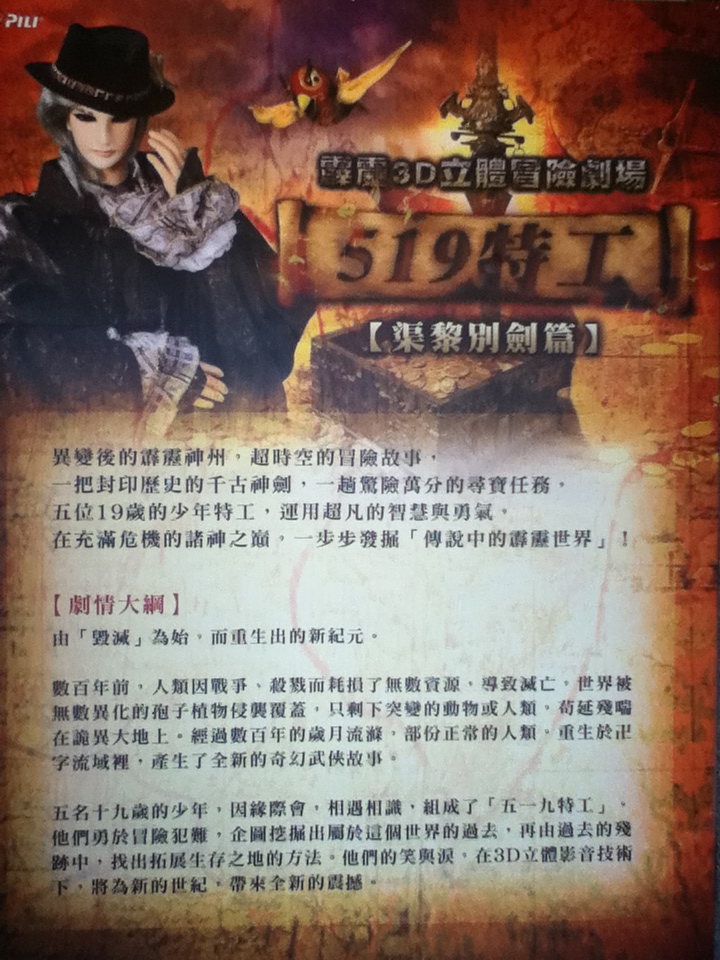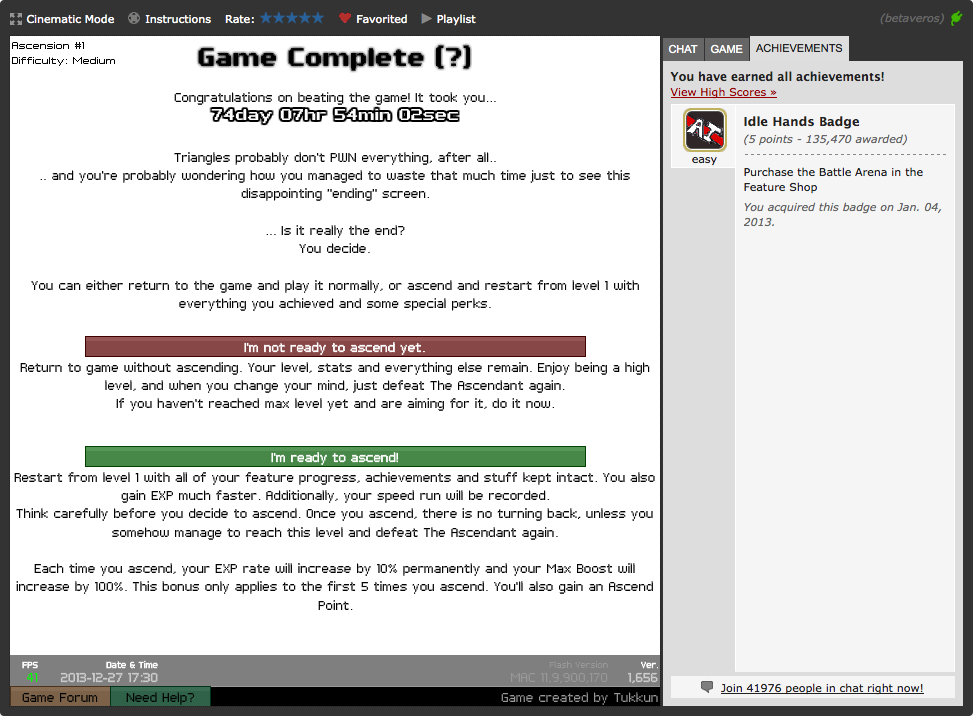It’s another weekend, isn’t it.
I’m out of deep things to say. I don’t usually have deep things to
say. Sorry to anybody who subscribed hoping for more things like the
last post. This is basically going to be a personal stream of
consciousness post. But it’s a stream with a long ancestry, since I
apparently wrote 400 words about it in a WordPress draft four years ago.
This was way back before I even started writing post drafts in Markdown
on my computer instead of directly in WordPress, so I guess it must be
an interesting topic.
Four years ago, Brian2012 was suddenly struck by how many
of the people he knew were such serious gamers. But let’s go back even
earlier, shall we?
A long long time ago, when I was in elementary school or so, my
parents had some sort of reward system where I had to do productive
things, like study or do chores or write diary entries or practice the
piano or something, to earn time on the computer for games. “Gaming
time” was a currency. I enjoyed saving up lots of thirty-minute
increments and knowing I had the freedom to using them slowly.
That much I remember; the details of how it worked are very fuzzy and
I’m not sure what I played in those thirty-minute increments either. I
think there was Neopets and Runescape and Club Penguin. (My Neopets
account still sees sporadic activity, because I get really really bored
sometimes…)
(Frivolous blog content, posted as part of a
daily posting streak I have openly
committed to; standard disclaimers apply)
It is quite interesting that Wikipedia’s article on
Ninety-nine
(addition card game), plus many of the following search results
(ignoring the identically-named trick-taking game that is guaranteed to
show up), have the same basic idea but wildly differing assignment of
special cards from the one I’m familiar with, which everybody I can
recall having played with agrees on. (Admittedly I’ve only ever played
this among Taiwanese friends.) The only special-card assignment method
that came close was a certain person’s
“stuff
from my old blog” dumping post I bumped into very accidentally. (His
5 is our 4; our 5 skips to an arbitrary player. The post also clarifies
that negative totals bounce back to zero, and includes a clause whereby
players must state the running total after playing and lose if they’re
wrong. Interesting.)
Anyway, yes, I am documenting the rules to a card game on this blog.
I think this deserves to exist online.
These rules are not completely rigorous because I don’t know them
completely rigorously. You can use common sense to reach a consensus in
corner cases.
Use a normal deck of playing cards, or two or more identical decks if
you want. Deal five cards to each player and set the rest aside to form
a draw pile. Cards are played into a discard pile in the center. Players
sit in an approximate circle and take turns along the circle, playing
one card and then, usually, drawing one replacement card from the draw
pile, so in normal 99, hands stay at five cards. When the draw pile runs
out, shuffle the discard pile to become the new draw pile.
Shamelessly getting unfinished business out of the way. Yup, that’s
me.
Excursion Day 1. We traveled down to Yilan on a bus. I played
guess-it with Paul.
I was quite surprised at myself for remembering this game, but I think
it’s simple and little-known enough to be worth mentioning. Guess-it is
a remarkably pure game of luck and bluffing from one of Martin Gardner’s
columns, played with a small odd number of cards, e.g. the 13 cards of
one poker suit. The cards are dealt evenly to players (who can look at
them) with one card left over, which is kept face down; players take
turns choosing one of two actions:
-
Name a card and ask the other player if he or she has it. These
questions must be answered honestly.
-
Guess the left-over card. The guesser wins if correct; the other player
wins if not.
Guess-it is not trivial because sometimes you should ask the other
player if he or she has a card that you already see in your hand;
otherwise whenever you answered “no” to a query you’d immediately guess
that the asked card is the hidden one. It is actually a solved game in
the sense that the probabilities of the Nash equilibrium strategy for
when to guess and when to bluff have been worked out already, but
they’re not simple probabilities by any means and humans are terrible
randomizers anyway. A few rounds of it sure beats rock-paper-scissors. I
was very amused to lose almost all our games with 11 cards but win
almost all of our games with 13.
Okay, no more gratuitous narrative excursions into game-theory. The
first stop, National Center for Traditional Arts, was a very laid-back
culture place with old-fashioned retro shops and streets.
We watched a 3D glove puppetry (布袋戲) video, in the same session as
a lot of the leaders.

I did it!


